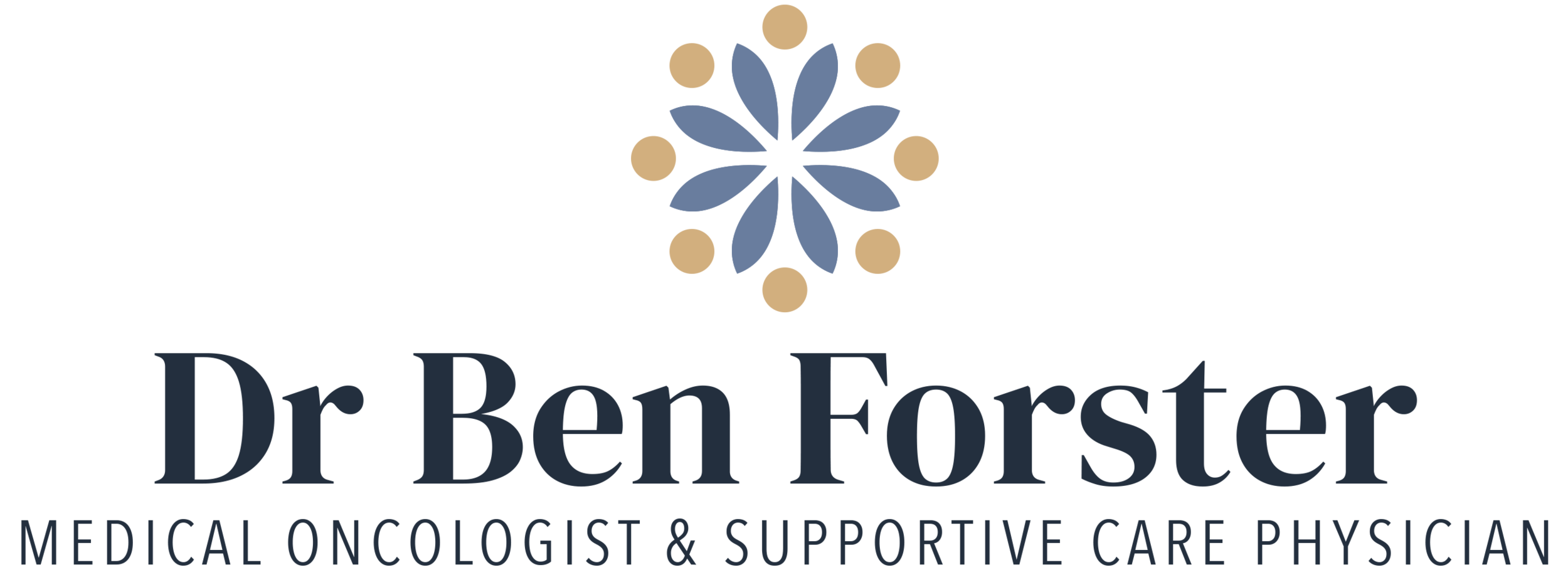Supportive Care & Survivorship
As a medical oncologist and supportive care physician, Dr Forster provides specialist advice to help people manage early breast cancer. Supportive care physicians are specialists in symptom management while survivorship is all about optimising health and wellbeing after cancer.
What is supportive care in breast cancer treatment?
Cancer treatment places many demands on your body. Managing the acute and long-term side effects of treatment can help you live as fully and comfortably as possible. Supportive care physicians have specific expertise in managing complex or persistent symptoms which have occurred as a result of cancer treatment
What side effects can supportive care help with?
Common side effects during and after breast cancer treatment that can be addressed by a supportive care physician include:
Fatigue
Nausea and/or vomiting
Loss of appetite
Muscle and joint pain (musculoskeletal symptoms)
Chemotherapy-induced neuropathy
Sleep disturbance
Reduced bone health (including osteopenia or osteoporosis)
Hot flushes and sweats (vasomotor symptoms)
Cognitive impairment (including reduced memory, concentration, word-finding difficulty)
Sexual dysfunction (including vaginal dryness, discomfort with intercourse)
Lymphoedema
Psychological symptoms (anxiety or depression)
Fear of recurrence
For tips on management of many of these symptoms, go to managing adverse effects of Chemotherapy / managing adverse effects of Hormone Therapy.
Life after cancer treatment
It can take time to get back to feeling yourself after cancer treatment. Restoring your physical and emotional wellbeing is an important part of the journey.
The term survivorship refers to concept of optimising the health and wellbeing of cancer survivors. An important aspect of this is managing treatment-related side effects and psychological symptoms, as well as optimising general health and well-being by attending to lifestyle factors such as diet, exercise, and alcohol consumption.
For tips on how you can make changes to your lifestyle (eg exercise, diet and nutrition) to help reduce the risk of cancer coming back see information on lifestyle modification.
You can also book a consultation with Dr Ben Forster for advice specific to your situation.

